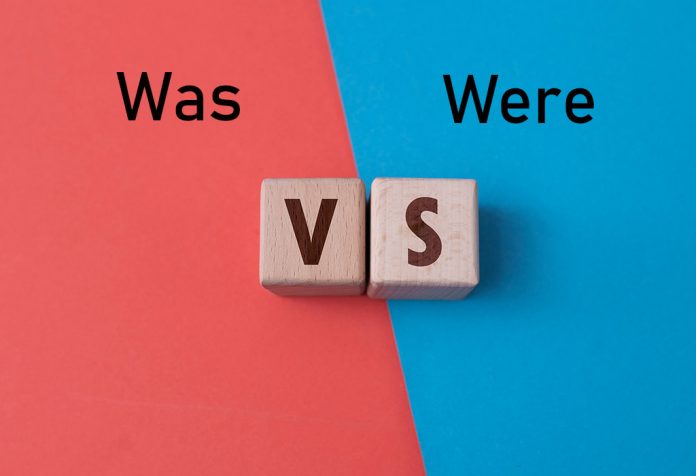Last Updated on January 4, 2023
English grammar can be difficult for children to understand and use. They often get confused between words like “Was” and “Were” and use them interchangeably. Therefore, it is important that we teach our little ones the difference between such words that may leave them confused.
Thank you for reading this post, don't forget to subscribe!
In this article, we have discussed the verb “to be”, which is one of the most confusing one for children. The verb “to be” has many uses. Its past tense forms, “Was” and “Were”, are, perhaps, some of the most confusing. Let’s take a look at this guide to teach children about “Was” Vs. “Were”.
Was and Were: The Similarities
Both the words “was” and “were” are the past tense of the verb “to be “. The word “was” can be used only with the first and third person singular, i.e. I, he, she, it. The word “were” can be used with the rest of the pronouns, i.e., you, we, and they.
Let’s learn more about the words “was” and “were” difference in English. “Was” is used when we refer to a single party or entity. “Were” is used when referring to numerous parties or entities.
If I Was Vs. If I Were
Now, let’s understand what “If I Was “and “If I Were” mean. Many people use the two terms interchangeably without realising the meaning of it. The rule is simple, “Was” is used for statements that describe reality. For example, “I wanted to become a writer when I was younger”. When making a hypothesis and saying something that you wish for (subjunctive mood), you should use “Were”. For example, “I wish I were a better dancer”.
Was Vs. Were: When To Use
Let’s take a look at when to use “Was” and when to use “Were”.
Use “Was” for first-person singular and third-person singular.
For example:
| 1. She was practising her speech. |
| 2. He was very busy. |
| 3. He was going to school, but then he got sick. |
| 4. She was born in England. |
Use “Were” for second-person, first-person plural, and third-person plural.
For example:
| 1. We were always smiling when we were around you. |
| 2. They were sure you would become a writer when you got older. |
| 3. They were heavily dressed. |
| 4. We were very busy yesterday. |
There are some cases in which “Were” is always used, like when you’re writing in the subjunctive mood.
For example:
| 1. I wish I were a kid again. |
| 2. I wish I were in London now. |
| 3. She’s extremely frugal. She acts as if she were broke. |
Examples Of Was Versus Were
Now that your little one knows where to use “Was” and “Where”, let’s take a look at some “Was” and “Were” sentence examples. These examples also cover “you was” or “you were” and “there were” vs “there was” examples.
| 1. He was selected by a unanimous vote. |
| 2. Her hair was tied up with a blue ribbon. |
| 3. I was furious when she crashed my car. |
| 4. It was five degrees below zero last night. |
| 5. When I was twenty, I was already married. |
| 6. When I opened the fridge, I found there was no more juice left. |
| 7. When I opened the box, I found there were no more biscuits left. |
| 8. I told you that you were pretty. |
| 9. Soldiers were marching on the ground. |
| 10. I wouldn’t have overeaten if I were you. |
We hope you and your little one had a fun time learning about “Was” and “Were” verbs. Don’t forget to make it a habit to make your child practice these verbs daily. You can take the help of some activities and games to make the learning process fun and easy for them.
Also Read:
Singular and Plural Nouns for Kids
Pronouns for Kids to Improve Vocabulary
Difference Between These vs Those with Examples











